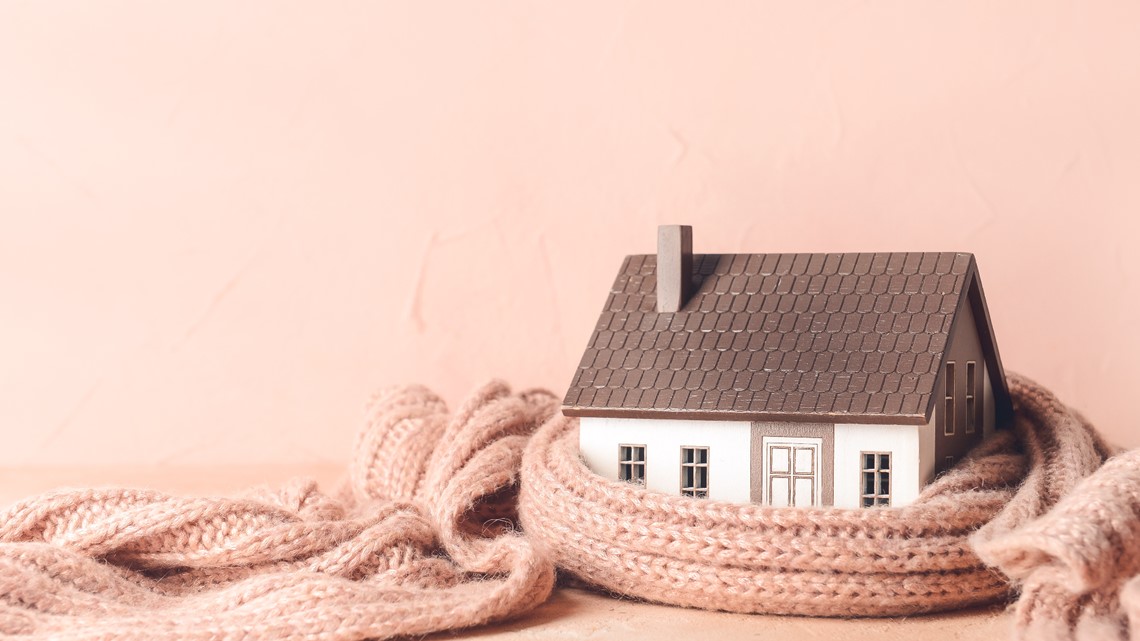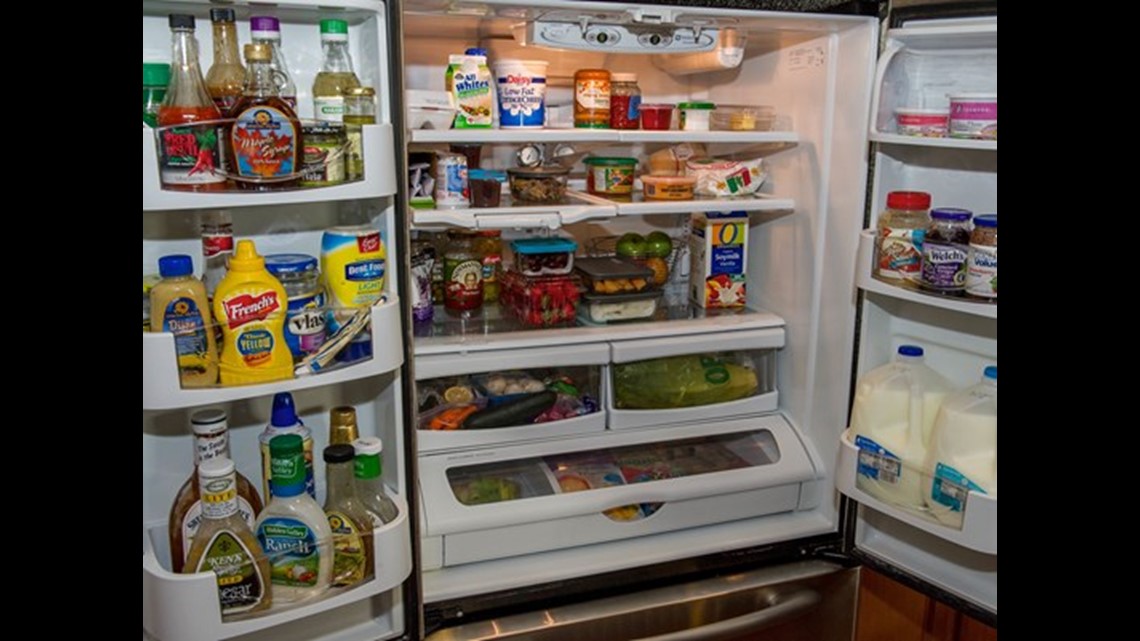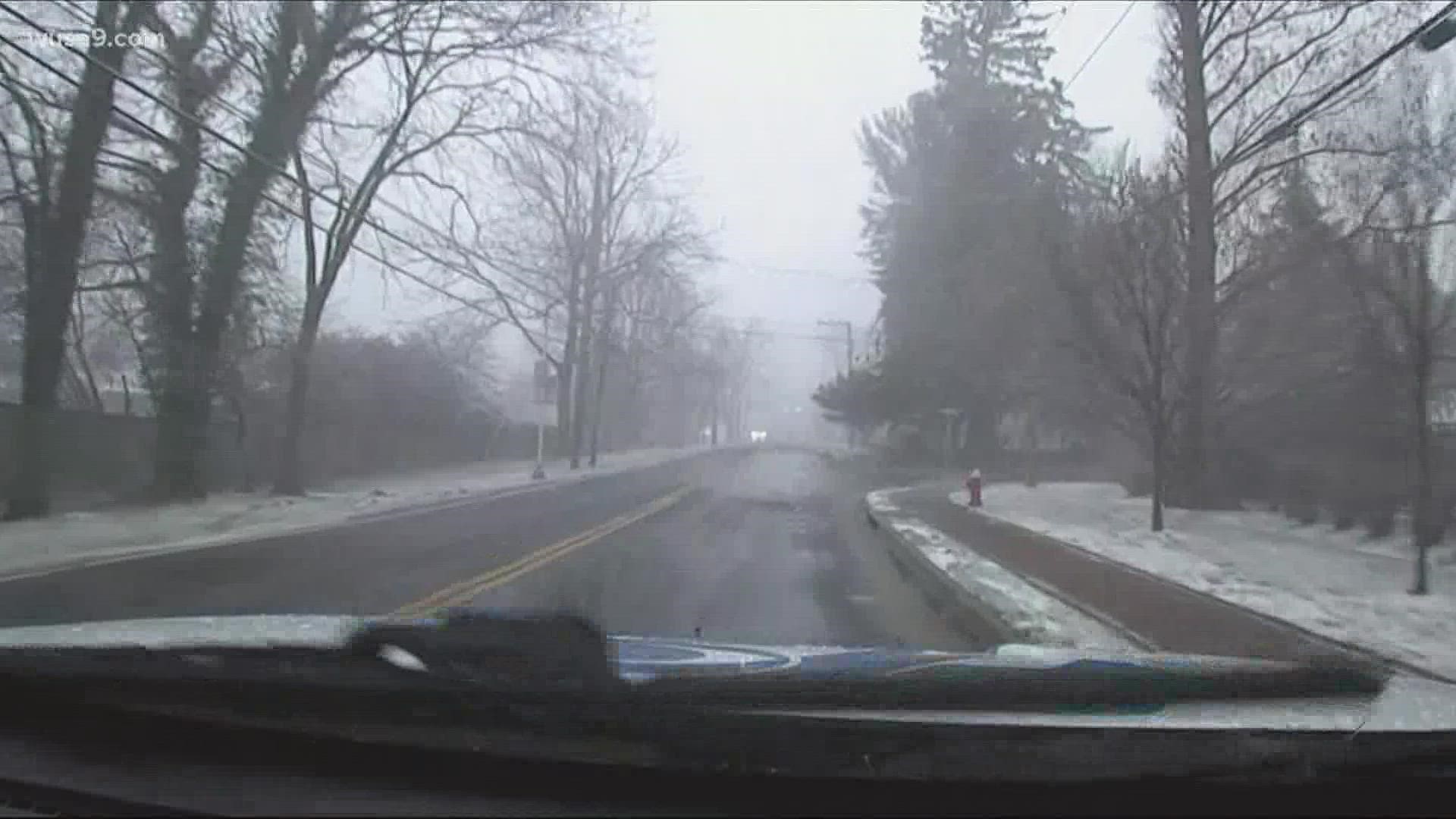WASHINGTON — Some of the coldest air the DMV has seen in years has arrived just in time for the holidays. WUSA9 Meteorologist Kaitlyn McGrath says, "If you can, just stay home."
But, what if you lose power while at home? Here are some handy tips to keep you safe if that occurs.
A power outage can be caused by a myriad of things but it is important to be as prepared as you possibly can, especially during severe weather. Extended power outages can impact everyone from a home to an entire community. It can cause issues with communication, prevent the use of medical devices, impact access to water and cause food to spoil while grocery stores may be closed.
Below we have compiled a list of tips and tricks for you to use to survive a power outage during a winter storm from the CDC, Dominion Energy and Ready.Gov, a national public service campaign designed to educate the American people to prepare for natural and man-made disasters.
How to retain the heat you already have


When the power goes out, there goes your home's central air and heat. So how do you make sure you retain the heat that is already in your home?
One suggestion is to prep for power outages by using weatherstrip doors and windows. Weatherstripping supplies can usually be found at your local hardware store. Lowe's Hardware also has an in-depth instruction manual on how to weatherize your home.
If your home gets too cold, look into any community locations with power near you.
Generator and Natural gas appliances
Dominion Energy says residents should not connect any portable generators to a home's electrical system.
"Always use caution when operating a portable generator and be sure it is properly grounded before use," the Dominion Energy website reads. "Improper use can injure electrical utility workers as a result of 'feedback' to the electrical distribution systems."
Under no circumstances should you ever bring a generator into your home in order to create heat. Odorless and colorless carbon monoxide gas from gas-fueled heaters and generators can build up, resulting in injuries or even death.
Ready.Gov suggests installing carbon monoxide detectors with battery backup in central locations on every level of your home.
While natural gas appliances will continue to work during a power outage, both Dominion Energy and Ready.Gov say to never use a gas appliance for heat.
"Avoid carbon monoxide poisoning," reads the Ready.Gov website. "Generators, camp stoves, or charcoal grills should always be used outdoors and at least 20 feet away from windows. Never use a gas stovetop or oven to heat your home."
Power surges and spikes
When the power does turn back on, Dominion Energy says power surges and spikes can occur and damage appliances and equipment. In order to avoid any damage, unplug any appliances, equipment or electronics you were using when the power went out.
How to keep your food from spoiling during an outage


One of the biggest concerns, when the power is out, is what happens to all the food in the fridge and freezer?
According to the CDC, one of the best ways to keep your food from spoiling during a power outage is to keep the refrigerator and freezer doors closed. If the doors stay closed, food will be safe in the fridge for at least four hours, while food in a full freezer will be good for 48, and food in a half-full freezer will be good for 24 hours.
If the power has been out for four hours, take the food from the fridge and place it in a cooler with ice if available.
How to tell if the food in your fridge is safe to eat following an outage
The CDC says people should never taste food to determine if it is still good.
"When in doubt, throw it out," the CDC website reads.
Perishable foods in the fridge, meat, fish, cut fruits and vegetables, eggs, milk, and leftovers, should be thrown away after four hours without power or a cold source, like a cooler with ice. Throw away any foods that have an unusual odor, color or texture.
Another way to check if your food is safe to eat is by temperature. Food kept in coolers or the fridge should be thrown away after reaching temps higher than 40 degrees.
Medications that require refrigeration


Some medications can require refrigeration. Ready.Gov says people should discard the medication if the power is out for more than a day unless the drug's label says otherwise.
Immediately contact your doctor or pharmacist for a new supply following the outage.
What to do if someone in your home depends on power for life support
If you or someone in your household requires power for medical equipment, Dominion Energy users must fill out a request form to be added to the utility's conditions list.
Once on the list, Dominion Energy will contact customers when the utility is expecting large power outages due to pending severe weather.
"This allows our customers to make necessary preparations in advance," the Dominion Energy website reads.
The utility says people with medical needs should always be prepared with battery or manually powered medical equipment in case of an emergency.
For longer outages, we encourage you to have a plan to receive proper care until service is restored," the utility said.

